Latest News
Japan Signs Two Agreements for Health Services, Eradication of Polio in Afghanistan
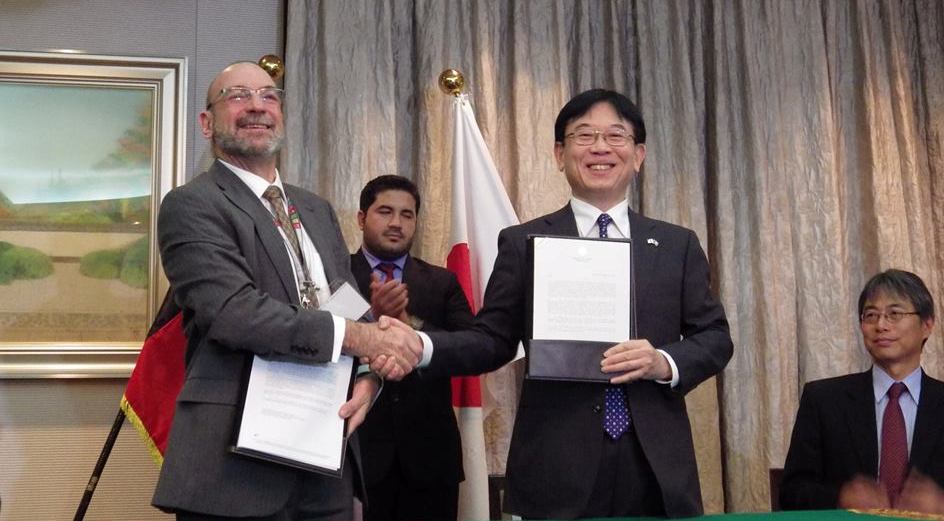
 The Japan Embassy in Kabul has signed two agreements with the UNICEF and UNDP and donated 17.7 million USD to provide life-saving vaccines for children and promote rural development in border areas in Afghanistan.
The Japan Embassy in Kabul has signed two agreements with the UNICEF and UNDP and donated 17.7 million USD to provide life-saving vaccines for children and promote rural development in border areas in Afghanistan.
The embassy announced, “the new projects are to help eradicate polio and prevent the spread of other deceases in Afghanistan, and to improve the livelihood in Tajik-Afghan cross-border areas for improvement of self-reliance and stability of the region.”
The projects approximately worth $8.6 million and $9.1 million, respectively, will help to procure the vaccines to protect 10.3 million children against polio, reach 1.37 million children with routine immunization and 2.5 million women of child bearing age in Afghanistan, and improve the livelihood of 1.8 million people living in border districts in Tajikistan and Afghanistan.
In the UNICEF’s Project “Infectious Diseases Prevention for Children in Afghanistan” (USD 8.6m), the contribution from the people of Japan will be used to procure routine vaccines for an annual cohort of some 1.37 million children under the age of one.
The vaccines include BCG against tuberculosis, Oral Polio Vaccine (OPV) for poliomyelitis, Meals vaccine and Hepatitis B.
In addition, some 2.5 million women of child-bearing age will benefit from the purchase of Tetanus Toxoid vaccine. These vaccines will be available for free at all health facilities and through the polio campaign.
At the signing ceremony, Ferozudin Feroz, Minister of Public Health said, “With continued support from the Government of Japan, we have succeeded in ensuring the provision of health services including the immunization services for the children and mothers of Afghanistan. We assure you that we will maintain our focus on routine immunization as one of the key pillars for stopping the circulation of the polio virus in Afghanistan. We hope that you will continue to keep routine immunization in Afghanistan as one of your top priorities, and I wish to thank you in advance for your future support to the Routine Immunization Programme in Afghanistan.”
The UNDP’s Project“Livelihood Improvement in Tajik-Afghan Cross-Border Areas (LITACA) Phase II” (USD 9.1 M) will be built on the past achievements of LITACA Phase I, which was also funded by the Government of Japan.
The project aims to improve living standards of the people in six districts in four provinces in Afghanistan (Shahr-e-buzurg District in Badakhshan Province, Cha Ab, Yang-e-Qala and Dasht-e-Qala Districts in Takhar Province, Imam Sahib District of Kunduz Province, and Khulm District of Balkh province) and eight districts in Khatlon Province in Tajikistan.
Furthermore, the project intends to promote stability and security of these cross-border areas, by ensuring self-reliance of the local people, reducing poverty, supporting economic development of the regions and encouraging cross-border collaboration among the communities. LITACA II will be implemented in line with the Citizen’s Charter of the Government of Afghanistan.
Japan has been assisting Afghanistan’s nation-building efforts in various fields including security, infrastructure, agriculture, rural development, human capacity development, education, health, culture and humanitarian assistance. The cumulative Japanese assistance to Afghanistan since 2001 amounts to $6.4 billion.
Edited by: Muhammad ZackArya

Latest News
WATCH: Authorities scramble to accommodate refugee influx at Afghanistan border
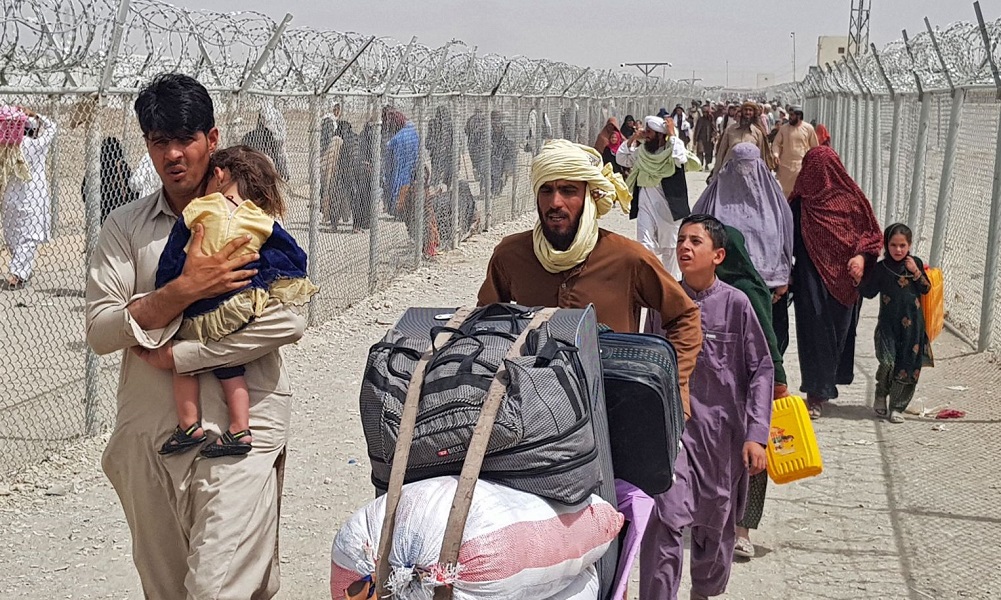
As thousands of refugees cross back into Afghanistan amid Pakistan’s campaign to forcibly expel over 1 million Afghans, local officials scramble to accommodate the influx which also means areas of landmines need to be cleared around the Torkham border area in order to establish more tented camps.
The mines and other unexploded ordnance are remnants of Afghanistan’s 20 year war that ended with the collapse of the former US-backed government in August 2021.
Government officials who visited Torkham this week say they are ready to cooperate with returning refugees.
Nooruddin Torabi, the head of the National Disaster Preparedness Agency, visited Torkham on Tuesday. He stressed the need to clear the area of mines and unexploded ordnance.
Torabi also said that another transit camp would be established to temporarily accommodate the returnees.
Refugees however have slammed the Pakistan government for the way they have handled this. Many say they are now homeless after having left everything behind, including houses, businesses and possessions. In addition to this, a large percentage of them have nowhere to go after having lived in Pakistan for decades.
Afghans have been fleeing to Pakistan for over 40 years – since the invasion of the old Soviet Union in December 1978.
Islamic Relief reported this week that tens of thousands of Afghans are facing dire conditions in makeshift camps after crossing the border from Pakistan.
According to the organization, an assessment team that visited Torkham found that many refugees are arriving in Afghanistan without any shelter, food, cash or water. These families were forced to leave possessions – including animals and household items.
People arrive in droves, covered in dust, crammed onto trucks, and face a barren border with no basic services in sight. The first thing that greets them is a harsh, wind storm swirling with dust.
This influx comes amid an economic crisis in the country and as global cuts to humanitarian funding have forced many essential services in Afghanistan to close, including health facilities and food distributions.
Many of the new arrivals have lived in Pakistan for decades after seeking refuge there, fleeing conflicts and instability in their homeland. They include children who were born in Pakistan and have never been to Afghanistan. Many others no longer have close family members in
Afghanistan or have not visited for many years. They are not truly ‘returning home’ as they hardly know Afghanistan and have no homes or livelihoods to kickstart their lives here.
Some of the arrivals do not even speak an Afghan language and many returnees lack proper identification documents.
The interim Afghan government has pledged to take care of refugees returning to Afghanistan and humanitarian organizations are ramping up efforts to help these refugees.
Pakistan last month set an early April deadline for some 800,000 Afghans carrying Afghan Citizen Cards (ACC) issued by the Pakistani authorities to leave the country, in the second phase of efforts to remove Afghans. More than 1.3 million Afghans who hold Proof of Registration cards from the UN refugee agency, UNHCR, have also been told to move outside the capital Islamabad and the neighbouring city of Rawalpindi
Latest News
Afghan, Pakistani commerce minister meet in Islamabad to discuss trade
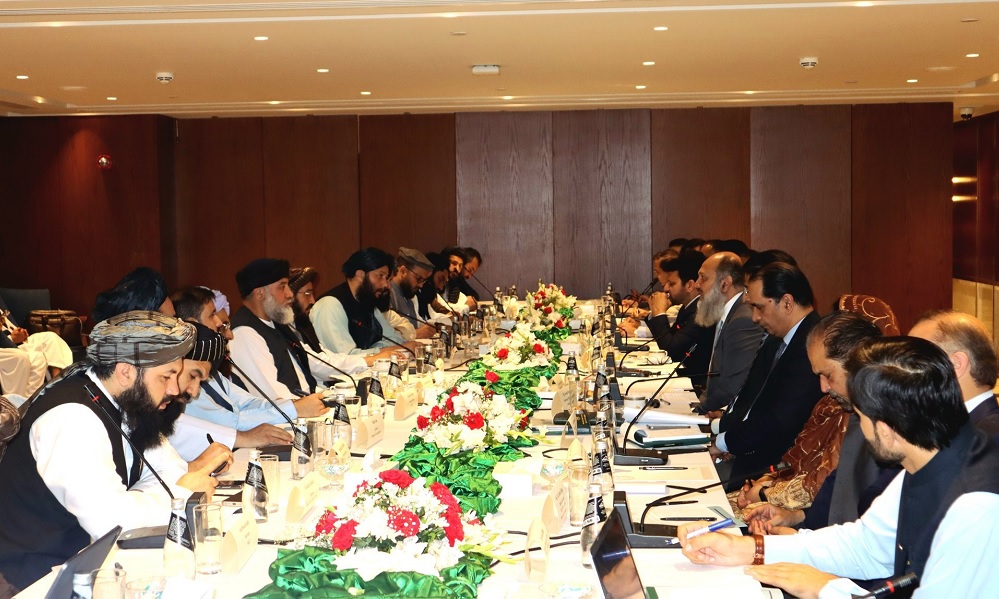
Afghanistan’s Acting Minister of Industry and Commerce Nooruddin Azizi met with his Pakistani counterpart Jam Kamal Khan, discussing bilateral trade, transit and other issues of mutual interest, it was announced on Thursday.
Separate meetings between the technical teams of both sides are also expected to be held for further discussions to find proper solutions for existing challenges and boost the bilateral trade, Afghanistan’s embassy in Islamabad said in a statement.
In a separate statement, Afghanistan’s Ministry of Industry and Commerce said that the meeting discussed extension of APTA trade agreement, transit facilities, prevention of smuggling of goods, coal exports, round-the-clock operations at Torkham crossing, possibility of bilateral trade through Ghulam Khan port, movement of trucks between the two countries, bank guarantee and creating a comprehensive mechanism for the management of ports.
Latest News
Islamabad ‘unhappy about something else’, but taking revenge on Afghan refugees: Fazl-ur-Rehman
He wondered why Pakistan was made to suffer from such “blind decisions”.
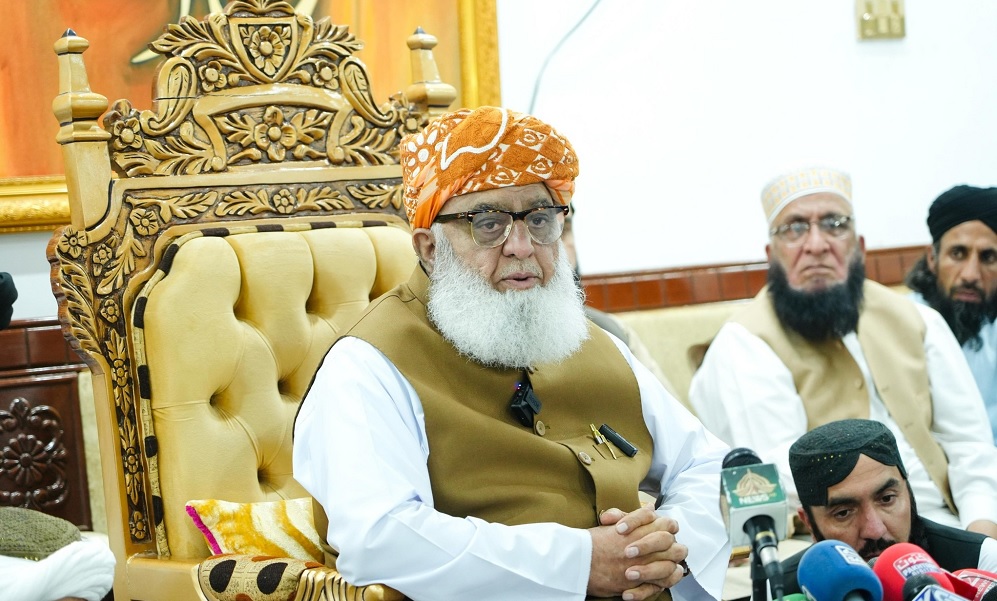
Pakistan’s Jamiat Ulema-i-Islam-F chief Maulana Fazl-ur-Rehman on Wednesday declared the forced deportation of Afghan nationals from Pakistan a violation of their human rights and urged international community and human rights organisations to take notice of it.
“Pakistani authorities are trampling on the human rights of Afghan refugees by hauling them like chattels in vehicles. Islamabad is unhappy over something else but taking revenge on Afghan refugees. This is a sentimental type of decision,” the JUI-F chief told a news conference in Peshawar, Dawn newspaper reported.
He said that Afghan professionals like doctors, engineers and others should have been adjusted here and should not be forced to leave the country.
The JUI-F chief said that expulsion of investors and businessmen who were doing business in Pakistan would also have economic consequences.
He wondered why Pakistan was made to suffer from such “blind decisions”.
“Pakistan’s interest should be kept in mind while making decisions,” he said.
Fazl said that students who were enrolled in Pakistan should also not be expelled and as forcing them out leaves them nowhere.
He said that education was one of the basic human rights and denying it was trampling on human rights.
Regarding the rest of the refugees, the JUI-F chief said that it was an issue between both countries and Pakistan had previously happily accepted Afghan nationals on its soil.
He said that hospitality was a part of Pashtun code.
“It’s imprudent to kick Afghans out of the country after hosting them for 45 years. Both countries should sit together and devise mechanisms for the repatriation of the Afghans,” he said.
Fazl said that unilateral expulsion of Afghan refugees not only violated human rights but also brought bad name to Pakistan.
-

 Regional4 days ago
Regional4 days agoIran, US hold ‘positive’ talks in Oman, agree to resume next week
-

 World4 days ago
World4 days agoTrump says Ukraine talks may be going OK, but there is a time ‘to put up or shut up’
-

 Latest News4 days ago
Latest News4 days agoPakistan’s Punjab CM calls for ‘human response’ to Afghan girls’ education ban
-

 Regional3 days ago
Regional3 days agoSaudi Arabia plans to pay off Syria’s World Bank debts – Reuters
-

 Latest News4 days ago
Latest News4 days ago6.1-magnitude earthquake shakes northern Afghanistan
-
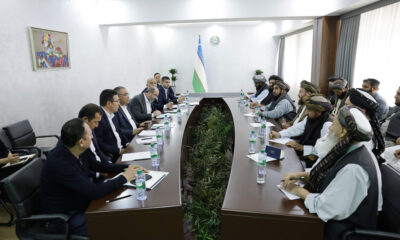
 Latest News3 days ago
Latest News3 days agoAfghanistan and Uzbekistan to expand cooperation in agriculture sector
-
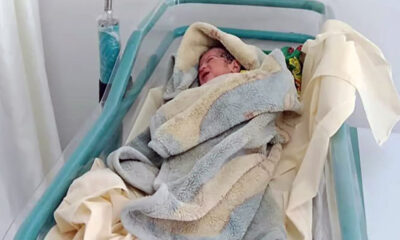
 Latest News2 days ago
Latest News2 days ago17 babies born at Torkham refugee centers in past two weeks
-

 World2 days ago
World2 days agoTrump says Iran must give up dream of nuclear weapon or face harsh response
















